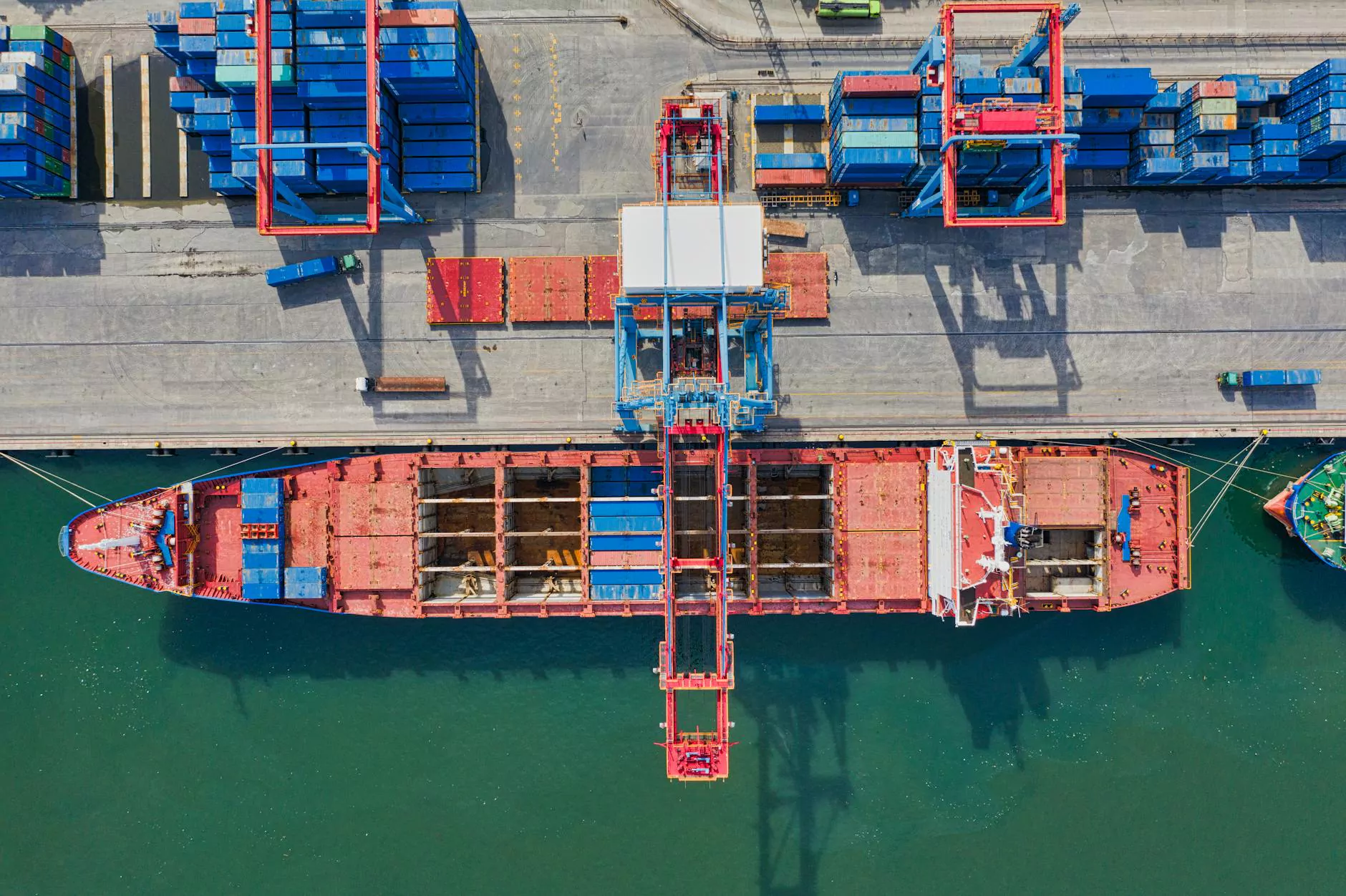Ultimate Guide to Airline Cargo Tracking: Ensuring Your Shipments Stay on Track

Airline cargo tracking is an essential aspect of modern logistics and supply chain management. As businesses grow and expand their reach globally, the demand for efficient, reliable, and real-time tracking mechanisms has skyrocketed. This article delves into the significance of airline cargo tracking, its technology, benefits, and why it is paramount for businesses at cargobooking.aero.
Understanding Airline Cargo Tracking
In the world of logistics, airline cargo tracking entails following shipments as they progress from the sender to the recipient. It incorporates various technologies that allow stakeholders to monitor, manage, and optimize their transportation networks effectively. By utilizing these monitoring tools, businesses can:
- Improve delivery times
- Increase customer satisfaction
- Enhance operational efficiency
- Reduce costs associated with delays
The Technology Behind Airline Cargo Tracking
The backbone of effective airline cargo tracking lies in its sophisticated technological framework. Key components include:
1. GPS Technology
Global Positioning System (GPS) technology allows for precise tracking of cargo airplanes. By integrating GPS with cargo management systems, businesses can obtain real-time information on the location of their shipments.
2. RFID and Barcode Scanning
RFID (Radio Frequency Identification) and barcoding help in tracking individual packages effectively throughout the shipping process. Each item can be tagged, enabling quick scanning at various checkpoints, ensuring that the logistics team knows exactly where each package is at any given moment.
3. Cloud Computing
Cloud-based systems are revolutionizing cargo tracking by allowing smooth data access, collaboration, and storage. Companies can keep all information synchronized and accessible in real-time, providing several stakeholders involved with the necessary information without delays.
The Importance of Airline Cargo Tracking
As businesses navigate the complexities of international trade, the importance of airline cargo tracking cannot be overstated. Here are several key reasons why tracking is crucial:
1. Increased Transparency
Transparency is vital in logistics. When all parties involved have access to real-time tracking data, it minimizes misunderstandings and enhances communication. This transparency can significantly lead to better business relations and improved customer trust.
2. Cost-Effectiveness
Tracking your shipments allows a company to pinpoint inefficiencies in their logistics chain. Identifying slow-moving cargo or recurrent delays can lead to improved strategies and subsequently reduce operational costs.
3. Enhanced Customer Experience
Customers today expect to know where their products are at any point in time. Airline cargo tracking provides this visibility, enabling businesses to inform their customers about the estimated arrival times, helping to build loyalty and trust.
4. Risk Management
By closely monitoring shipments, businesses can quickly respond to emergencies or unforeseen issues. This proactive approach to risk management can save time and money while maintaining service levels.
Best Practices for Effective Airline Cargo Tracking
To reap the benefits of airline cargo tracking, it is essential to implement certain best practices:
1. Choose the Right Technology
Selecting the appropriate technology depends on the nature of your business and the complexity of your logistics chain. Make sure to utilize a combination of GPS, RFID, and cloud systems for optimal results.
2. Regular Training for Staff
Ensure that your team understands how to utilize tracking technologies effectively. Regular training empowers staff to troubleshoot any issues that arise and ensures efficient use of the cargo tracking systems.
3. Continuous Monitoring and Reporting
Always monitor cargo movements and produce reports regularly. This data is invaluable for refining logistics strategies, allowing for continual improvement in efficiency and customer service.
4. Foster Supplier Relationships
Keeping an open line of communication with suppliers and other stakeholders is crucial. Collaborative efforts often yield better results in tracking capabilities, allowing for a seamless experience in shipping operations.
Challenges in Airline Cargo Tracking
While the importance of airline cargo tracking is apparent, several challenges remain that can impede the process:
1. System Integration
Integrating various systems across different modes of transport can be complex. Ensuring that all data streams synchronize effectively is vital to achieve comprehensive visibility.
2. Data Security
With increased reliance on digital platforms comes the risk of data breaches. Businesses must invest in robust cybersecurity measures to protect sensitive information.
3. Regulatory Compliance
Each country may have different rules and regulations regarding airborne cargo. Ensuring compliance with these laws can pose a challenge, especially for businesses operating in multiple jurisdictions.
The Future of Airline Cargo Tracking
The future of airline cargo tracking is promising, driven by technological advancements and changing consumer expectations. Here are some trends that will shape the future:
1. Artificial Intelligence and Machine Learning
AI and machine learning algorithms can process vast amounts of data to predict shipping delays, optimize routes, and even suggest solutions to common logistical problems.
2. Blockchain Technology
Blockchain offers a transparent way to record every transaction and movement of a shipment, enhancing traceability and accountability in shipping.
3. Drones and Automation
Drones are becoming a more feasible option for last-mile deliveries. As regulations adapt, cargo tracking will also embrace automated systems, making shipping faster and more efficient.
Airline Cargo Tracking and Business Growth
Ultimately, airline cargo tracking is not just a functional component of logistics; it is a crucial driver for business growth. Companies that excel in tracking and management can offer unparalleled service, instill confidence in their customers, and set themselves apart from competitors.
Engaging Customers Through Tracking
Today’s customers are savvy; they expect transparency in shipping. By providing them with real-time tracking information, you enhance your service and foster loyalty. Consider implementing tracking updates via SMS or email notifications to keep customers informed during the entire shipment process.
Conclusion: The Path Forward with Airline Cargo Tracking
In the rapidly evolving world of logistics, businesses cannot afford to overlook the importance of airline cargo tracking. By leveraging cutting-edge technology and adopting best practices, companies can not only streamline their operations but also provide exceptional service that meets modern expectations. As the industry continues to advance, staying ahead with reliable tracking solutions will be key to thriving in this competitive arena.
For more information on shipping centers, transportation, and airports, and how you can implement robust tracking solutions for your business, visit cargobooking.aero today.








